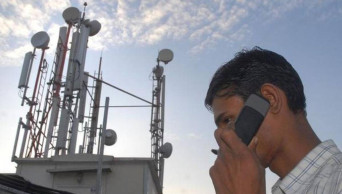internet connection
UN report details ‘dramatic’ impact on people’s lives due to internet shutdowns
The dramatic real-life effects of Internet shutdowns on people’s lives and human rights have been vastly underestimated, the UN Human Rights Office warns in a new report issued from Geneva on Thursday.
The report urges states not to impose Internet shutdowns.
“Too often, major communication channels or entire communication networks are slowed down or blocked,” the report says, adding that this has deprived “thousands or even millions of people of their only means of reaching loved ones, continuing their work or participating in political debates or decisions.”
The report aims to shed much-needed light on the phenomenon of Internet shutdowns, looking at when and why they are imposed and examining how they undermine a range of human rights, first and foremost the right to freedom of expression.
Shutdowns can mean a complete block on Internet connectivity but governments also increasingly resort to banning access to major communication platforms and throttling bandwidth and limiting mobile services to 2G transfer speeds, making it hard, for example, to share and watch videos or live picture broadcasts.
The report notes that the #KeepItOn coalition, which monitors shutdowns episodes across the world, documented 931 shutdowns between 2016 and 2021 in 74 countries, with some countries blocking communications repeatedly and over long periods of time.
“Shutdowns are powerful markers of sharply deteriorating human rights situations,” the report highlights. Over the past decade, they have tended to be imposed during heightened political tensions, with at least 225 shutdowns recorded during public demonstrations relating to social, political or economic grievances.
Shutdowns were also reported when governments carried out security operations, severely restricting human rights monitoring and reporting. In the context of armed conflicts and during mass demonstrations, the fact that people could not communicate and promptly report abuses seems to have contributed to further insecurity and violence, including serious human rights violations.
Collecting information about shutdowns is difficult as many governments refuse to acknowledge having ordered any interference in communications and sometimes put pressure on companies to prevent them from sharing information on communication being blocked or slowed down.
“The official justification for the shutdowns was unknown in 228 shutdowns reported by civil society across 55 countries,” the report states.
When authorities do recognize having ordered disruptions, justifications often point to public safety, containing the spread of incitement to discrimination, hostility or violence, or combatting disinformation.
Yet, the report describes how shutdowns often achieve the exact opposite, furthering fear and confusion, and stoking risks of division and conflict.
Internet shutdowns also carry major economic costs for all sectors, disrupting for example financial transactions, commerce and industry.
Read: Each union to get high speed broadband internet by 2023: Mustafa Jabbar
Economic shocks provoked by shutdowns are felt over long periods of time, greatly exacerbating pre-existing social and economic inequalities.
“Shutdowns effectively deepen digital divides between and within countries,” the report warns. At a time when substantial development aid is justifiably directed towards enhancing connectivity in less developed countries, some of the beneficiaries of that assistance are themselves deepening the digital divide through shutdowns.
At least 27 of the 46 least developed countries have implemented shutdowns between 2016 and 2021, most of which have received support to increase connectivity.
The report urges States to refrain from imposing shutdowns, to maximize Internet access and remove the multiple obstacles standing in the way of communication.
The report also urges companies to speedily share information on disruptions and ensure that they take all possible lawful measures to prevent shutdowns they have been asked to implement.
“Internet shutdowns have emerged as the digital world has become ever more important, indeed essential, for the realization of many human rights. Switching off the Internet causes incalculable damage, both in material and human rights terms,” said UN High Commissioner for Human Rights Michelle Bachelet.
Read: Remotest region to connect with broadband internet by 2025: Palak
“When a state shuts down the internet, both people and economies suffer. The costs to jobs, education, health and political participation virtually always exceed any hoped for benefit.”
“What this report clearly highlights is that swift action is needed to end Internet shutdowns, including through more prominent reporting of their impacts, more transparency by involved companies, and ensuring that we all defend connectivity from self-imposed disruptions,” the High Commissioner added.
3 years ago
RU’s poor campus internet more a bane than boon for students
Several years ago, Rajshahi University authorities brought the entire campus under broadband internet coverage with the aim of enhancing students’ learning activities.
However, due to the poor speed and quality of the internet connection, students are ending up wasting extra time while accessing internet-based e-library, online tutorials, learning activities and some other online-based activities, as a substantial amount of time is spent on buffering.
According to campus sources, 11 academic buildings of the university have been brought under internet coverage for the convenience of online learning activities of the students. The internet connection in these academic buildings is very poor. Sometimes it becomes very difficult to connect on students’ smartphones.
As a result, the students are not getting much benefit from the internet connection in these academic buildings.
Read: Rajshahi University dormitories reopen after 18 months
The authorities also provided three or four WiFi router connections on each floor in the residential halls so that the students can get internet service in their rooms. But the capacity of the routers is less than the requisite. Unless they’re in the rooms closest to the router, they are hardly able to get a connection worth surfing the net.
According to the ICT center of the university, the speed of the central server of the university is 2.80 Gbps. The connection is supplied through various routers on campus.
However, students are complaining that they get Mbps connection very early in the morning. For the rest of the day, the speed is only a few kilobytes.
The students said that they have to get involved in various online activities like meetings, seminars, workshops, online courses etc.
In most cases, they have to buy their own data packs to participate in those programs as the wifi connection is simply not good enough to allow them to participate in those activities.
A residential student of Syed Amir Hall of the university said that the internet speed in the hall is “slower than a tortoise”. The connection is not good at all due to poor routers. Even if we have to pay for the internet, we are not getting quality service.
Read: Fire spreads panic in CCU patients at Barishal hospital; 1 dies of heart attack
Nazmus Sakib Zihad, a residential student of Madar Bux Hall said, “As soon as we connect the internet, buffering starts. Apart from that, the wifi disconnects. So, I have to buy data packs to do academic activities.”
In this regard, Babul Islam, the director of the ICT Centre of the university, said the speed of more than 100 megabytes is often provided from the central server. But the speed gets slower when many devices are connected to the routers. “We are planning to make internet rooms for different halls and floors, including the ‘Gonoroom’ of the student’s hall,” Babul said.
4 years ago
Respite from call drop, poor internet connection still a far cry
Dhaka, July 12 (UNB)–Even as mobile phone users continue to complain about regular call drops and poor internet services, the Bangladesh Telecommunication Regulatory Commission(BTRC)is yet to take anyinitiative to address the growing menaces.
6 years ago




